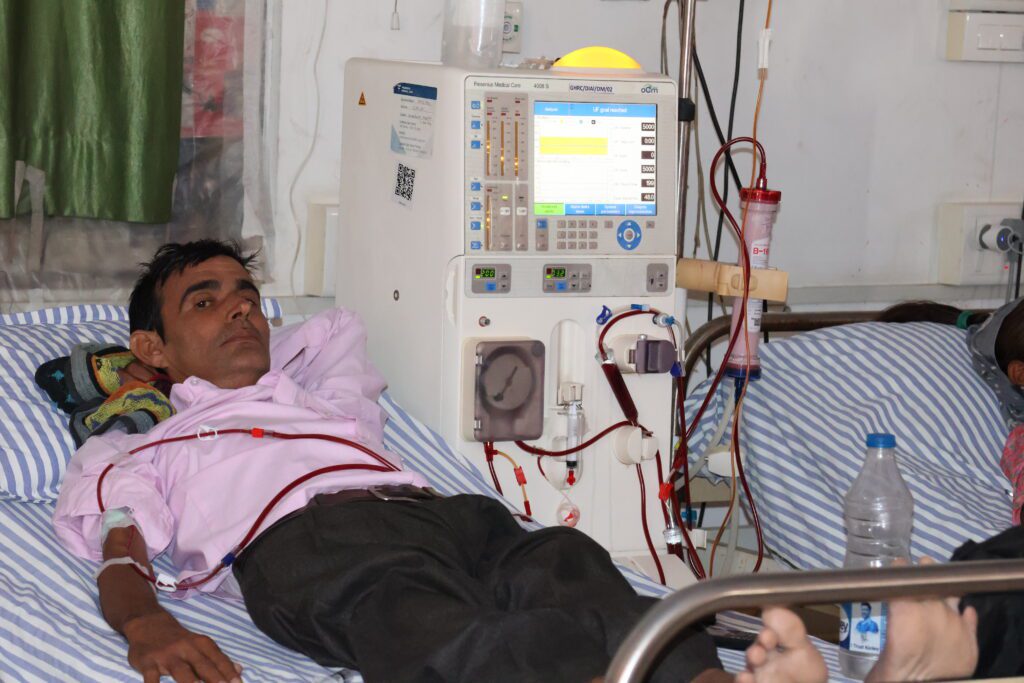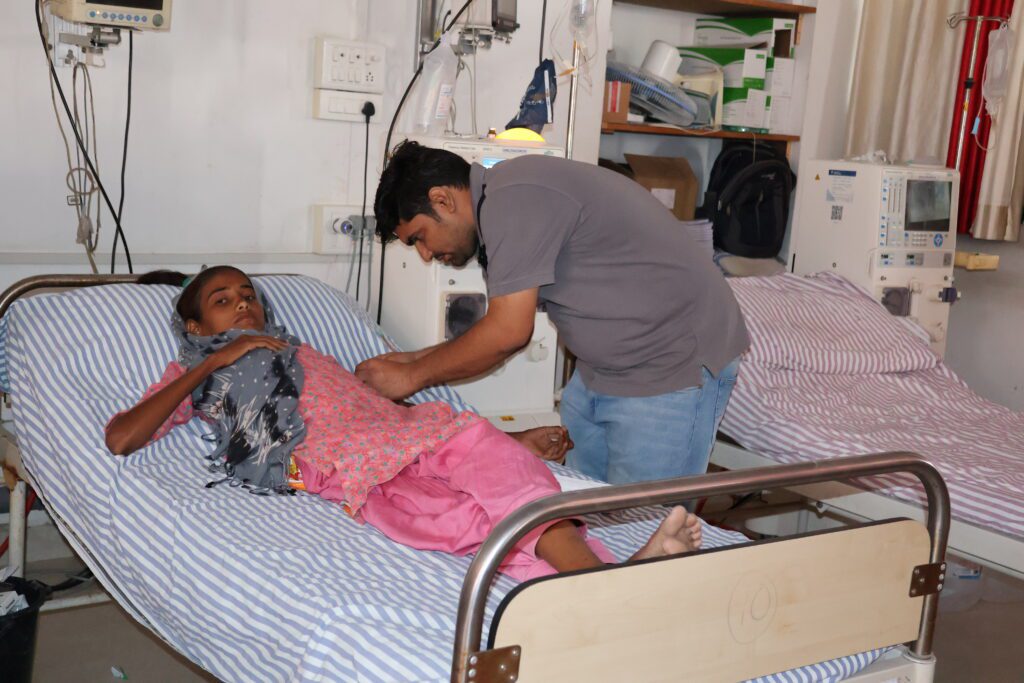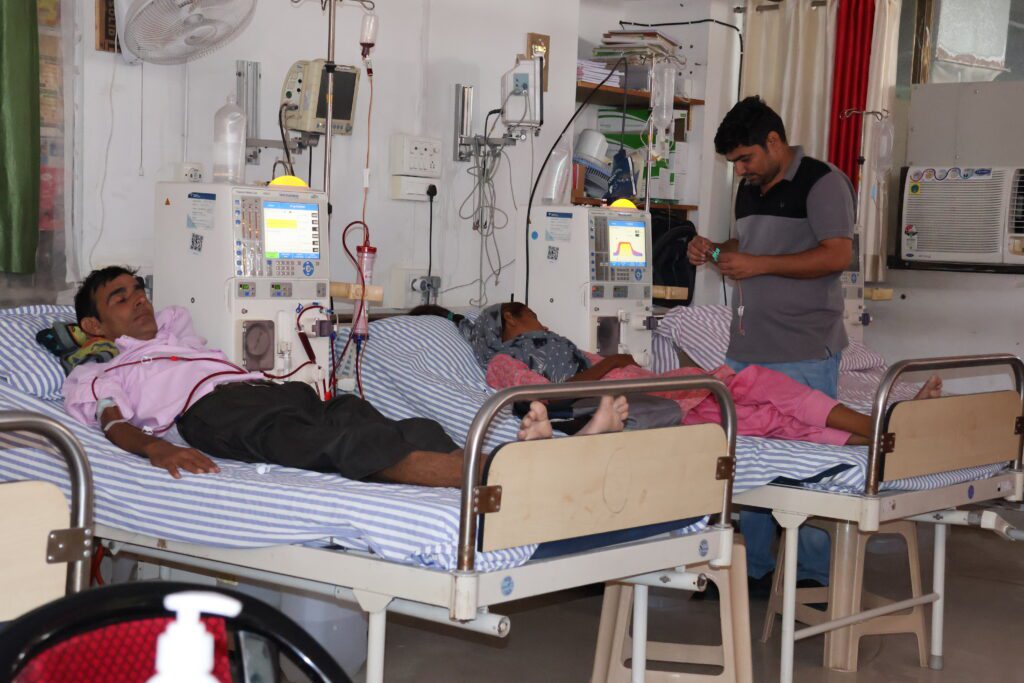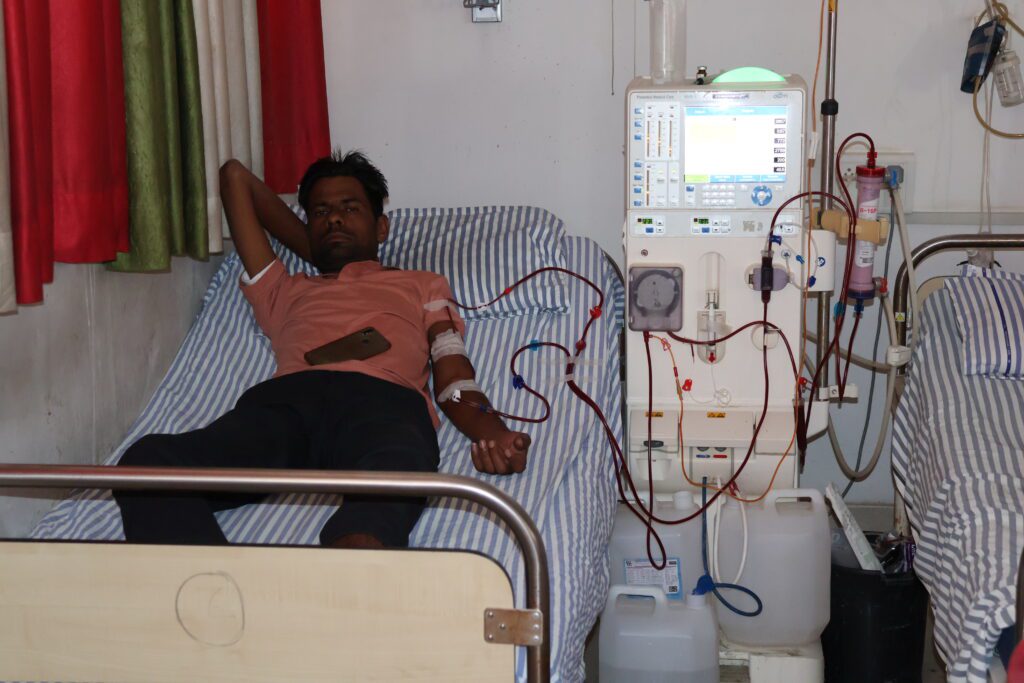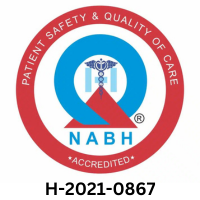Dialysis is a type of treatment that helps your body remove extra fluid and waste products from your blood when the kidneys are not able to. Dialysis was first used successfully in the 1940’s and became a standard treatment for kidney failure starting in the 1970s. Since then, millions of patients have been helped by these treatments.
Dialysis can be done in a hospital, a dialysis center, or at home. You and your doctor will decide which type of dialysis and which place is best, based on your medical condition and your wishes. Visit Gurukripa Hospitals for Kidney Care in Sikar.
Dialysis is helpful for two different situations:
- Acute kidney injury (AKI): a sudden episode of kidney failure or kidney damage that happens within a few hours or days. AKI is usually treated in a hospital setting with intravenous fluids (given through the vein). In severe cases, dialysis may also be needed for a short time until the kidneys get better.
- Kidney failure: when 10-15% of your kidney function remains, measured by an estimated glomerular filtration rate (eGFR) of less than 15 mL/min. At this stage, your kidneys are no longer able to keep you alive without some extra help. This is also known as end-stage kidney disease (ESKD). With kidney failure, dialysis is only able to do some of the work of healthy kidneys, but it is not a cure for kidney disease. With ESKD, you will need dialysis for the rest of your life or until you are able to get a kidney transplant.
